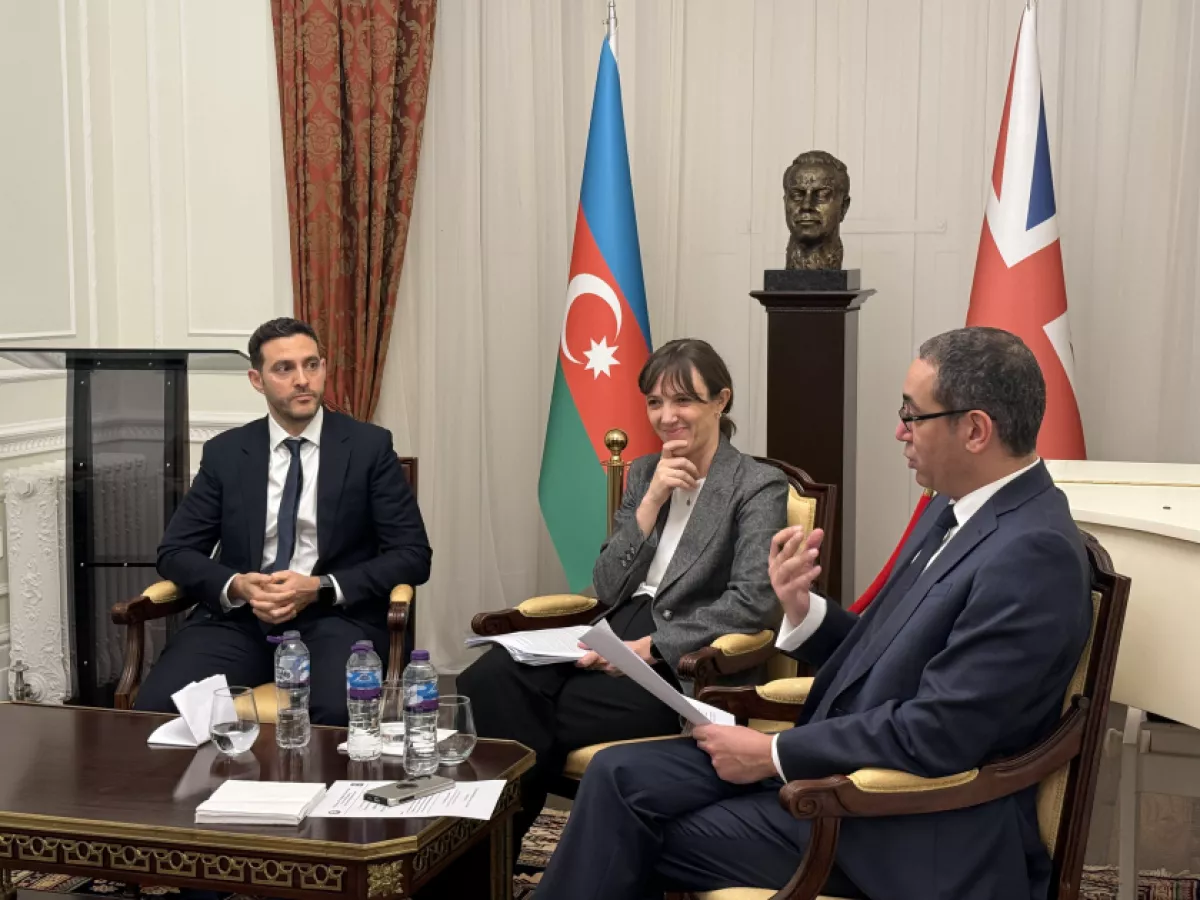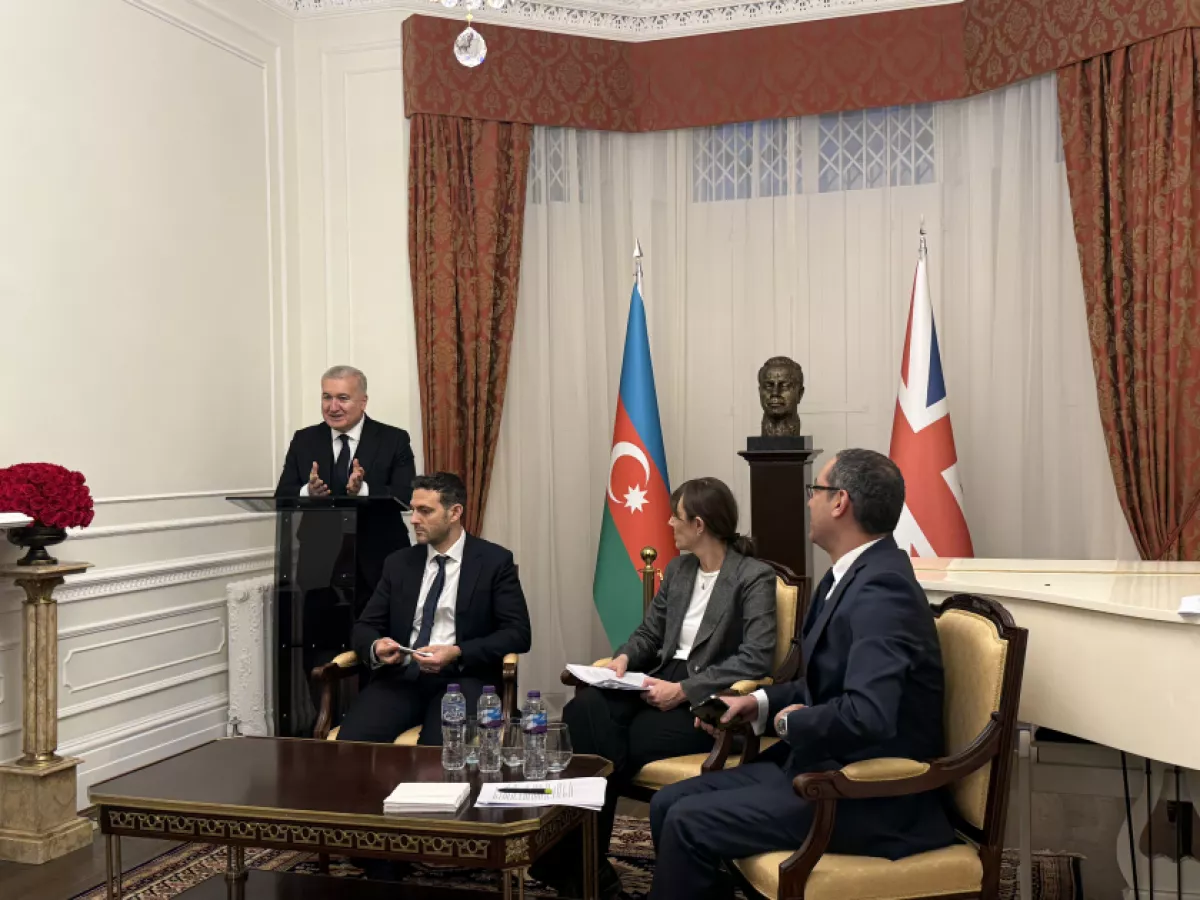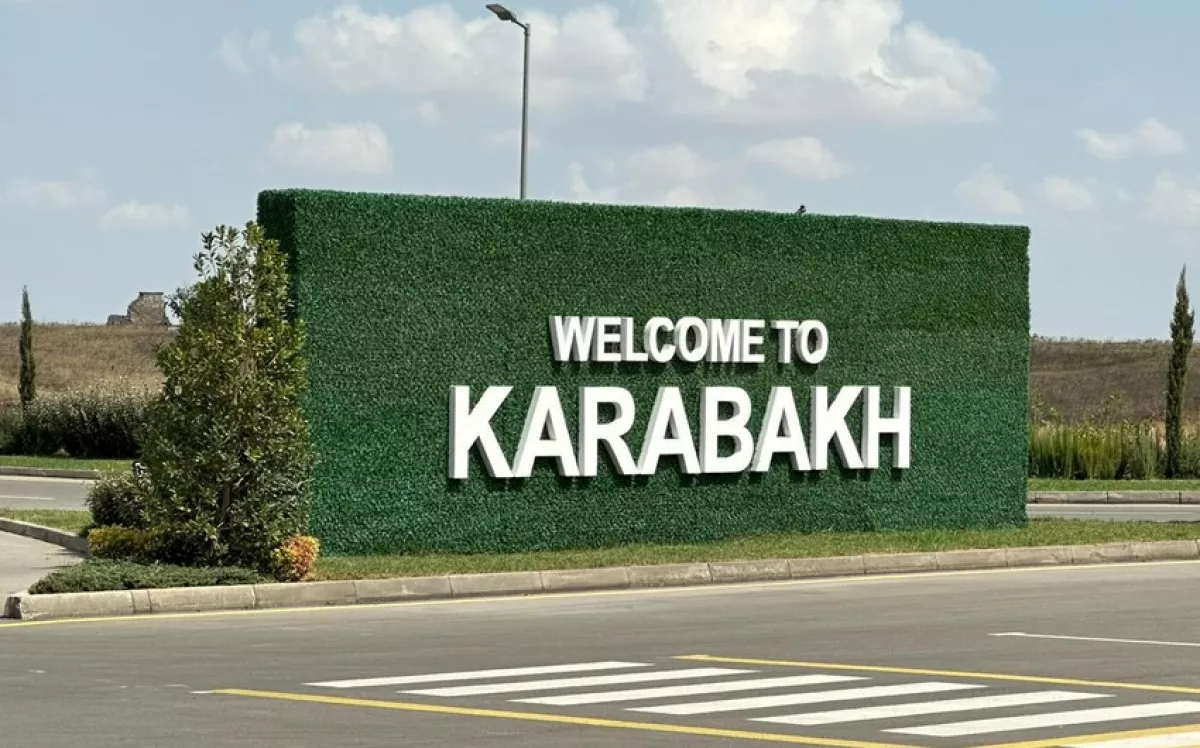Azerbaijan, United Kingdom reset relations Business, energy, and defence in focus
Over the past three decades, Azerbaijani-British business ties have become a key pillar of Azerbaijan’s trade, economic, and investment cooperation. More than a third of the country’s total foreign investment—primarily in the energy sector—originates from British companies. Currently, the two nations are accelerating collaboration in green energy, transportation, and the IT sector. The summit held in Washington on August 8 also laid the groundwork for potential partnerships in defence technologies. These opportunities, along with other avenues for expanding business cooperation, were recently discussed at an event hosted by the Embassy of Azerbaijan in London.
Since the signing of the “Contract of the Century” in 1994, relations between Baku and London have grown from mutually beneficial business cooperation into a strategic partnership. Many key milestones in the development of Azerbaijan’s domestic oil and gas extraction and transportation sectors are closely linked to the active involvement of British companies, foremost among them British Petroleum (BP). BP leads the implementation of major energy projects in Azerbaijan, serving as the operator of the offshore Azeri-Chirag-Gunashli (ACG) oil fields and the Shah Deniz gas-condensate field. The company also holds equity stakes in the Baku-Tbilisi-Ceyhan (BTC) and South Caucasus pipelines and maintains a 20% share in the Southern Gas Corridor (SGC) consortium. Over the past three decades, investments by BP and its affiliated international partners in these projects have exceeded $85 billion.

Alongside traditional energy sectors, UK business circles have recently shown a strong interest in diversifying trade and investment with Azerbaijan. At the end of April, during the 7th meeting of the Azerbaijan-UK Joint Intergovernmental Commission on Economic Cooperation in London, new priorities for bilateral collaboration were outlined.
Business communities from both countries agreed to make every effort to expand trade. Over the first three quarters of this year, trade turnover between Azerbaijan and the UK reached a record $955.5 million, representing a 60.4% increase compared to the same period last year. As a result, the United Kingdom has risen to seventh place among Azerbaijan’s top trading partners.
Meanwhile, UK companies are also seeking to diversify their investments into sectors such as renewable energy, green hydrogen production, startups and IT, agribusiness processing, and tourism. There are strong grounds for expanding investment and attracting British businesses to Azerbaijan’s non-oil sectors. This topic was discussed during the forum “Azerbaijan’s Sovereign Credit Rating and Economic Outlook: Unlocking the Regional Potential of the Caucasus and Central Asia”, held on October 30 at the Embassy of Azerbaijan in London.

"This year, Azerbaijan has achieved significant progress in its economic development. In particular, the international rating agency Moody’s upgraded the country’s sovereign credit rating from Ba1 to the investment-grade level of Baa3," noted the event moderator, partner and head of Oliver Wyman in Azerbaijan, Jamal Ismayilov. "Over the past decade, the government has pursued a targeted strategy to strengthen economic resilience and enhance long-term competitiveness. The positive decision by Moody’s and other rating agencies reflects strong confidence in the economic reforms being implemented in our country."
During the panel discussions at the forum, Moody’s Vice President Daniela Re Fraschini and Chief Analyst at investment bank Oppenheimer & Co, Gabin Levy, provided detailed insights into Azerbaijan’s sovereign credit rating and economic resilience. The speakers highlighted that the country’s fiscal policy, financial capacity, and macroeconomic indicators, along with efforts to reduce dependence on oil and diversify the non-oil economy, have strengthened international investor confidence.
At the same time, Azerbaijan’s strategic position in the South Caucasus and its strong partnerships with Central Asia in terms of transport, logistics, and economic integration present significant opportunities for attracting capital. Moreover, it was emphasised that following the August 8 summit in Washington, which initiated the process of normalising relations between Baku and Yerevan, the country’s investment profile has noticeably improved.
In this context, Azerbaijan’s Ambassador to the United Kingdom, Elin Suleymanov, noted that the initialling of a peace agreement and the ongoing normalisation process between Azerbaijan and Armenia open new economic opportunities not only for the two countries but also for the wider South Caucasus and Central Asia. These developments facilitate investment inflows, support the effective functioning of regional trade and transport-logistics corridors, and enable the expansion of energy and other projects.

The first effects of political normalisation in the South Caucasus are already becoming evident: the defence ministries of Azerbaijan and the United Kingdom have signed a two-year plan for bilateral military cooperation. “The UK is proud of our close cooperation with Azerbaijan in defence and its role in the Strategic Partnership. The defence ministries of the UK and Azerbaijan signed the 2026/27 Defence Bilateral Cooperation Plan. We look forward to working closely together to deliver on shared priorities,” stated a recent message from the British Embassy in Baku.
The UK’s lifting of the arms embargo on Azerbaijan opens new opportunities for collaboration in defence and security, said the head of the UK–Azerbaijan Parliamentary Friendship Group, Bob Blackman. “It reflects the British government's confidence in Azerbaijan as a stable, responsible partner in the region (the South Caucasus - ed.). Defence and security cooperation will naturally evolve cautiously and responsibly, with an emphasis on training, cybersecurity, border management and counterterrorism [...] The UK can contribute by sharing expertise in defence modernization, maritime security in the Caspian Sea and humanitarian de-mining efforts in the liberated territories,” Blackman emphasised.
Notably, during the forum at the Azerbaijani Embassy in London, the establishment of the Azerbaijan–UK Business Council was announced. The new body aims to strengthen trade and economic ties, facilitate collaboration between businesses, promote the exchange of knowledge and experience, and protect the interests of the business communities in both countries. Such a structure is particularly important today, as British companies are increasingly engaging in projects within Azerbaijan’s non-oil sectors.
In this context, the UK All-Party Parliamentary Group for Azerbaijan (APPG) is considering a visit by a delegation of British parliamentarians to the Karabakh region in early 2026. In addition to supporting reconstruction efforts in Karabakh, the APPG plans to focus on cooperation in green energy and educational partnerships.

"Azerbaijan has vast untapped potential in wind, solar, and hydro power, and the UK can be a key partner in unlocking that potential," recently stated the UK Trade Envoy to Azerbaijan and Central Asia, member of the House of Lords, John Alderdice. He noted that this year BP accelerated cooperation with Azerbaijan’s Ministry of Energy on the construction of a 240 MW solar power plant in Jabrayil and the electrification project of the Sangachal oil terminal.
British companies are also involved in developing a master plan for decarbonising Azerbaijan’s energy sector, aimed at creating integrated green energy and transport systems, constructing energy-efficient buildings, managing waste, developing zero-waste industry, and more. Leading UK companies BP and KBR are participating in offshore wind energy research and the prospective production and export of hydrogen fuel in Azerbaijan. BP-Azerbaijan, along with a number of British high-tech companies, supports the development of the startup ecosystem and is exploring opportunities to participate in IT projects and implement Industry 4.0 components in the country.
According to Alderdice, there is enormous potential for Azerbaijani–UK cooperation in the transport sector and in developing the logistics capacity of the Middle Corridor. Not long ago, with the support of the UK Export Finance (UKEF), the first deal was completed to acquire a Boeing 777 simulator, produced by the British company L3Harris Commercial Aviation Solutions, for the needs of Azerbaijan’s National Aviation Academy.








